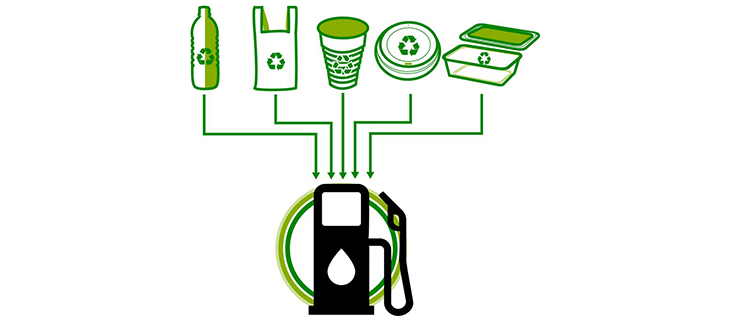The Future of Waste Management: Converting Plastic to Fuel
There has been a rising awareness of alternative disposable methods for the mounting plastic waste problem. One of which includes plastic-to-fuel projects that have started to gain traction in the energy industry. This innovative solution holds promise to not only curb pollution but also provide significant economic benefits. According to the American Chemistry Council, plastic-to-fuel facilities could create 39,000 jobs in the US alone and $9 billion in economic output.
What’s more, plastic-derived fuels are capable of producing a cleaner burning fuel than traditional sources due to their low sulfur content. Let us look at three such projects that are focused on converting plastic waste to fuels such as diesel and petroleum.
Scientists from the University of California along with researchers from the Shanghai Institute of Organic Chemistry have come up with a plastic recycling method in which polyethylene plastic is dissolved to create petroleum. Typically, polyethylene requires a significant amount of heat or reactive, toxic chemicals to break the atomic bonds. This process, however, makes the resulting compound unusable. The method developed by these scientists and researchers, on the other hand, uses less heat and allows the final product to be a cleaner source of fuel.
A team of researchers, led by UC Irvine chemist Zhibin Guan, made use of hydrocarbon molecules that are used to make polymers to create fuel. By removing and adding bonds between the carbon and hydrogen atoms within the material, the team was able to turn polyethylene into liquid fuel. This fuel can be used in automobiles and for other industrial purposes.
Another project led by two self-taught inventors from France have designed a low-tech machine that melts plastic waste into diesel and fuel. The main objective behind the invention is to help combat plastic pollution and provide fuel to regions in developing countries. Plastic waste is fed into a closed reactor and they are broken down at 450-degree Celsius to produce gasoline and diesel. According to creator Christofer Costes, a kilo of plastic waste can give a liter of liquid fuel.
With such incredible innovations to convert plastic waste to fuel, it makes us wonder what could be next?
Leave a Reply Cancel reply
Recent Posts
- Understanding The Materials That Are Used To Build Plastic Toys
- All You Need To Know About Food-grade Plastics
- A Glance At The Materials That Boost The Performance Of Plastics
- Understanding The Importance Of Exploring New Business Opportunities In The Plastic Industry
- Understanding The Importance Of Investing in R&D For The Plastic Industry
Categories
- 3D Printing
- AIPMA
- Automation
- Automobile Sector
- Bio Plastics
- Environment
- Innovations In Recycling
- Latest Innovations
- Molds & Dies
- News
- Packaging Industry
- Plastic
- Plastic Application
- Plastic Industry
- Plastic Market
- Plastic Myths
- Plastic News From The World
- Plastic Packaging
- Plastic Products
- Plastic Recycling
- Plastic Solar Cells
- Plastic Toys
- Plastic Waste
- Plastic World
- Plastics
- Plastics And Their Applications
- Plastics In Agriculture
- Plastics In Healthcare
- Plastics In Medical Industry
- Plasticulture
- Processing Machinery
- Recycling Machines
- Robotics
- Uncategorized
- Virtual Reality
Archives
- November 2023 (3)
- October 2023 (2)
- September 2023 (3)
- August 2023 (3)
- July 2023 (3)
- June 2023 (3)
- May 2023 (2)
- April 2023 (2)
- March 2023 (2)
- February 2023 (2)
- January 2023 (2)
- December 2022 (3)
- November 2022 (1)
- October 2022 (1)
- September 2022 (2)
- August 2022 (1)
- July 2022 (3)
- May 2022 (3)
- March 2022 (2)
- February 2022 (1)
- January 2022 (1)
- September 2021 (2)
- August 2021 (3)
- July 2021 (4)
- June 2021 (4)
- May 2021 (3)
- April 2021 (2)
- March 2021 (4)
- November 2019 (8)
- October 2019 (8)
- September 2019 (8)
- August 2019 (8)
- July 2019 (8)
- June 2019 (8)
- May 2019 (8)
- April 2019 (8)
- March 2019 (8)
- February 2019 (11)
- January 2019 (8)
- December 2018 (8)
- November 2018 (12)
- October 2018 (12)

